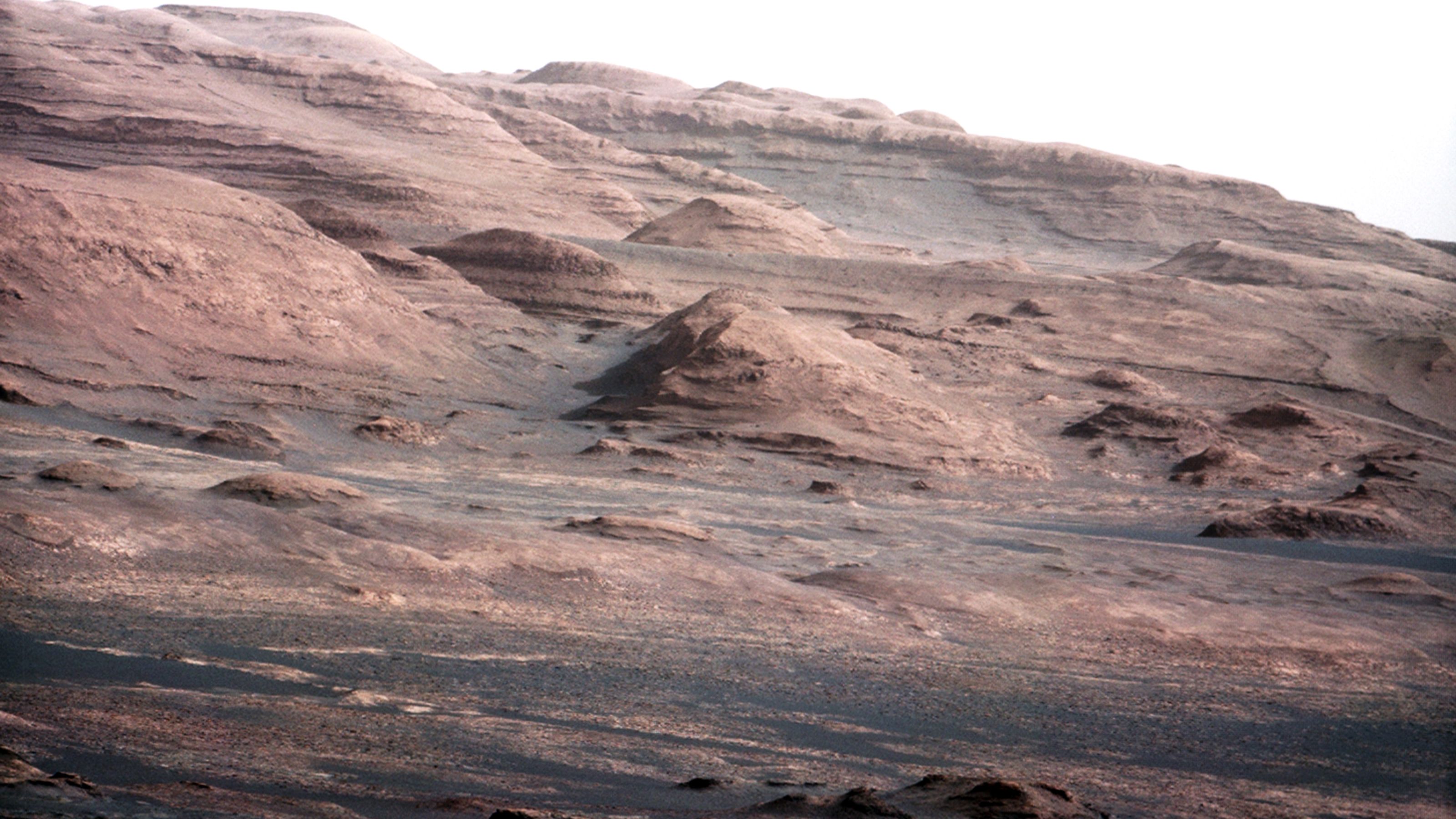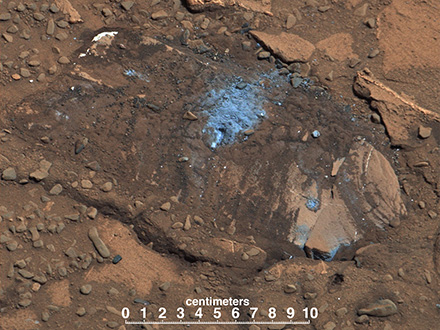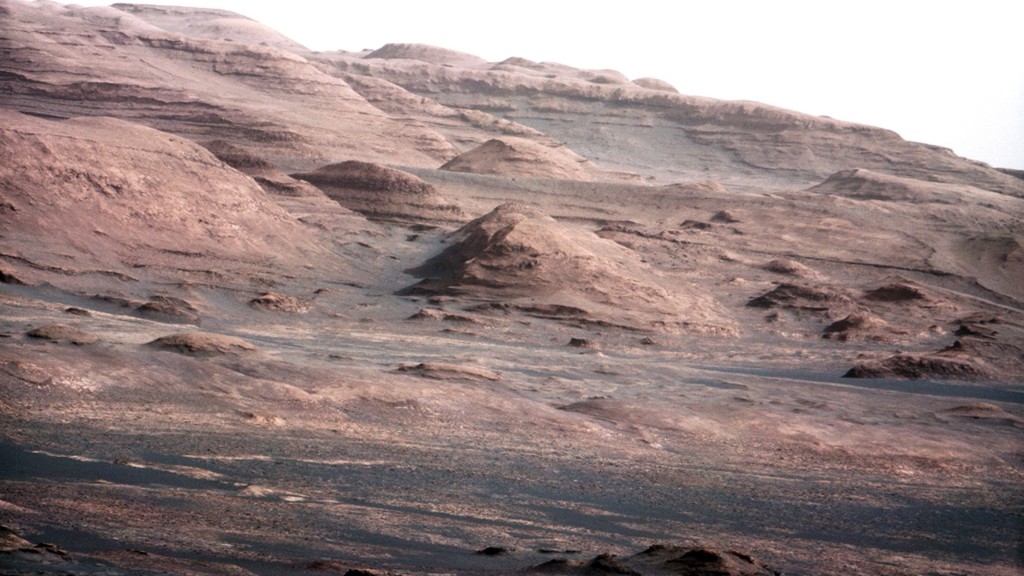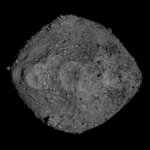September 12, 2014 – In case you missed it the rover in Gale Crater on Mars has achieved another milestone, having traversed across rough terrain with minimal damage to its delicate wheels and now sits at the base of Mount Sharp where it will begin its ascent.
What’s on its agenda? 18-meter (60 foot) tall mesas, the Murray Buttes, are its next destination. These formations stand out against the predominantly red surface of Mars. They are blue-green with white veins. They are believed to contain high levels of silicon which makes them a likely place to find evidence of past Martian life.
Curiosity had encountered similar rock as it traversed Gale Crater but the rock samples were defined by the Jet Propulsion Laboratory team as too unstable to study (see below the image of one of those blue rocks Curiosity attempted to drill and then stopped after the rock started to crumble; the vibration of the drill exposed the contrasting blue surface as the Martian dust fell away).
The Murray Buttes on the other hand are enormous, as much as 200 meters (660 feet) thick and represent millions of years of Martian geological history for Curiosity to explore. From an earlier picture taken by Curiosity you can see the buttes rising in the centre foreground in the image at the bottom of this posting.
The plan is not to ascend to the top of Mount Sharp, but to climb part way while doing a lot of exploring and drilling. This next phase in the rover’s mission should be even more exciting than that which has preceded it over the last two years.












